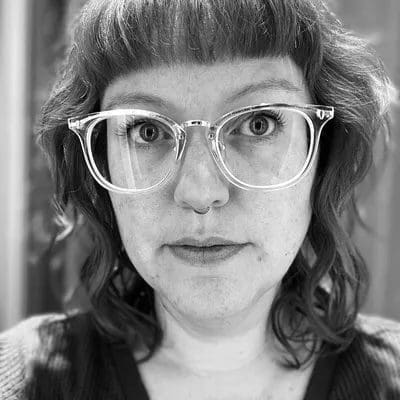Body image deeply affects self-worth and well-being, often intensifying disordered eating behaviours for those with eating disorders. Negative perceptions can drive habits like restrictive eating and over-exercising, rooted in ingrained thought patterns.
Cognitive Behavioural Therapy (CBT) effectively challenges these patterns, replacing distorted thoughts with balanced perspectives to support recovery. This article introduces CBT exercises to help individuals shift from self-criticism to self-compassion, encouraging a healthier, accepting relationship with their bodies. Consistent practice of these exercises nurtures a positive, resilient self-image, supporting lasting change on the recovery journey.
The Role of Negative Body Image in Eating Disorders
Eating disorders, such as anorexia nervosa, bulimia nervosa, and binge eating disorder, frequently involve a preoccupation with weight, shape, and appearance. Negative body image in this context isn’t just a fleeting feeling of dissatisfaction; it often becomes a core belief that fuels destructive behaviours and cycles of self-criticism. For instance:
- Anorexia Nervosa: Individuals with anorexia may perceive themselves as "too large" or "unattractive" regardless of their actual weight, often leading to restrictive eating and excessive exercise to achieve an ideal they believe will bring them acceptance and worth.
- Bulimia Nervosa: Those with bulimia often experience extreme body dissatisfaction, which can lead to cycles of binge eating and purging as a way to cope with intense self-criticism and the pressure to maintain a particular body shape.
- Binge Eating Disorder: People with this disorder may struggle with shame about their bodies, leading to emotional eating episodes and reinforcing a cycle of guilt, body dissatisfaction, and low self-esteem.
Negative body image can intensify these behaviours, trapping individuals in a cycle where their thoughts about their appearance dictate harmful eating patterns and self-punishing behaviours.
This loop makes it increasingly difficult to break free from the eating disorder without addressing the underlying beliefs about body image.
Cognitive Distortions that Fuel Body Image Issues
Cognitive distortions are inaccurate or irrational thought patterns that reinforce negative beliefs and behaviours.
In the context of eating disorders, these distortions can deeply influence body image, creating a distorted self-perception that feels real and unchangeable. Some common cognitive distortions affecting body image include:
- All-or-Nothing Thinking: Seeing body image in extremes, such as believing that they must look "perfect" or they are "completely unattractive."
- Catastrophising: Imagining the worst possible outcome, such as thinking, "If I gain even a little weight, no one will love me."
- Selective Abstraction: Focusing solely on perceived "flaws" while ignoring positive attributes. For example, someone may obsess over a particular part of their body they dislike, overlooking other aspects they feel positively about.
- Comparative Thinking: Frequently comparing one's body to others or unrealistic beauty standards, leading to feelings of inferiority and increased self-criticism.
These thought patterns contribute to the negative body image that drives disordered eating behaviours, making it challenging for individuals to see their bodies in a balanced, accepting way.
Why Cognitive Behavioural Therapy (CBT) is Effective for Body Image in Eating Disorders
Cognitive Behavioural Therapy (CBT) is widely respected for its ability to address and modify deep-seated thought patterns that contribute to negative body image, especially in those with eating disorders.
Rather than simply aiming to “feel better” about appearance, CBT focuses on altering the underlying beliefs and cognitive distortions that drive body dissatisfaction. Through structured exercises, CBT provides practical tools to identify, challenge, and reframe negative thoughts, fostering a more balanced, compassionate relationship with one’s body that supports sustainable recovery.
It has demonstrated success across various mental health conditions, including anxiety, depression, PTSD, and eating disorders, equipping individuals with strategies to build resilience and maintain positive changes over the long term.
How Does CBT Address Body Image Issues?
For individuals with eating disorders, negative body image is not only a symptom but also a significant trigger for harmful behaviours. Negative self-perceptions and body-related beliefs often drive restrictive eating, bingeing, purging, or excessive exercise.
Treating the eating disorder requires addressing these underlying cognitive distortions that reinforce a negative relationship with one’s body. CBT approaches body image issues in several ways.
CBT provides practical techniques for addressing body image issues in those with eating disorders by identifying and challenging cognitive distortions. Instead of enforcing body positivity, CBT fosters a neutral or compassionate view, encouraging self-acceptance and appreciation of the body’s functionality rather than focusing on appearance.
From Psych Hub
Critical Elements of CBT Techniques for Body Image Improvement
CBT incorporates various structured exercises and strategies that specifically target body image issues. Below are some key elements of CBT for improving body image:
- Thought Monitoring: One of the foundational exercises in CBT is thought monitoring, which helps individuals become more aware of their automatic negative thoughts. Individuals gain insights into the triggers perpetuating their body dissatisfaction by tracking when, where, and why certain negative thoughts arise.
- Cognitive Restructuring: Cognitive restructuring involves identifying and replacing distorted thoughts with more balanced alternatives. This may involve questioning whether thoughts are evidence-based or merely assumptions and practising self-compassionate rephrasings that foster a more supportive inner dialogue.
- Behavioural Experiments: These practical exercises test the validity of a person’s beliefs about their body. For example, if someone believes that wearing a particular outfit will cause them shame or judgement, a behavioural experiment might involve wearing that outfit in a safe environment and noting the actual outcome. These experiments are valuable for challenging irrational beliefs about body image.
- Body Image Exposure: For some individuals, looking at themselves in the mirror or wearing certain types of clothing can be anxiety-provoking. CBT encourages graded exposure to these triggers, helping individuals reduce their sensitivity to appearance-related anxiety and gradually build confidence.
- Self-Compassion and Self-Acceptance Practices: CBT integrates elements of self-compassion to counteract self-critical thoughts. By incorporating compassion-based strategies, CBT supports shifting from body-focused perfectionism towards kindness and self-acceptance.
Practical CBT Exercises for Overcoming Negative Body Image
Cognitive Behavioural Therapy offers various structured exercises that are particularly effective in addressing negative body image. These exercises help individuals recognise distorted thoughts, reframe negative self-perceptions, and practice healthier ways of interacting with their bodies.
Identifying and Challenging Negative Thoughts
Negative body image often stems from automatic, distorted thoughts that pop up frequently and feel deeply ingrained. A significant part of CBT is helping individuals become aware of these thoughts and challenging their validity. A thought record is a tool where individuals jot down negative thoughts as they arise. The process encourages mindfulness, allowing individuals to observe rather than be absorbed by their thoughts.
Practising Cognitive Restructuring
Cognitive restructuring is a CBT technique that involves reframing negative beliefs into more realistic and supportive ones. Regarding body image, this means identifying harsh self-criticisms and replacing them with self-compassionate statements. Instead of aiming for body positivity, it encourages neutrality or self-acceptance.
Exposure Exercises to Body Triggers
Body image issues are often intensified by avoidance behaviours—avoiding mirrors, certain types of clothing, or social situations. CBT utilises exposure therapy to gradually confront these triggers in a safe, controlled way. Mirror exposure involves standing before a mirror and observing your body without criticism.
Developing Mindfulness and Self-Awareness
Mindfulness is an essential aspect of CBT for body image as it teaches individuals to be present with their thoughts and emotions without judgment. Mindfulness practices can help reduce anxiety around body image by encouraging a more balanced and accepting view of oneself.

The Long-Term Benefits of Healthy Coping Mechanisms and Body Image Flexibility
Developing healthy coping mechanisms and body image flexibility offers several long-term benefits, particularly for those recovering from an eating disorder:
- Reduced Reliance on External Validation: Individuals who cultivate internal coping strategies and a flexible view of body image become less dependent on external validation or appearance-based compliments for their self-worth.
- Increased Emotional Resilience: By learning to tolerate body image-related discomfort without acting on it, individuals build resilience and self-trust, empowering them to face challenging situations with a calm, steady mindset.
- Sustainable Recovery and Self-Acceptance: Healthy coping mechanisms and body image flexibility ultimately lay a foundation for sustainable recovery. By practising self-compassion and values-based actions, individuals can gradually shift from a critical view of themselves to a more balanced self-image.
CBT offers a supportive framework for lasting change, guiding individuals toward a compassionate relationship with their bodies.
Resources for Continued Growth
Ongoing resources such as CBT workbooks, mindfulness practices, and community support groups can enhance progress and inspire sustained self-acceptance. Engaging with these resources reinforces CBT’s tools, making the journey toward body acceptance a continuous process.
Through CBT, it’s possible to redefine body image, replacing criticism with compassion and focusing on self-worth beyond appearance. This journey may be challenging, but each effort is a gift of respect and kindness to oneself.
Having the proper support can make a world of difference. Working with a therapist, especially one trained in CBT, offers guidance tailored to individual needs. At the same time, support groups or trusted friends provide encouragement. Connecting with others reduces isolation and reinforces self-acceptance.
CBT and Eating Disorder Recovery FAQ's
CBT requires time, but some may notice positive changes within a few weeks with consistent practice.
While some exercises can be done independently, working with a therapist can provide tailored guidance and support.
No, these exercises can be beneficial for anyone struggling with body image. However, they are beneficial for those with eating disorders.
It’s normal to feel challenged by these exercises. If something feels overwhelming, consider pausing or discussing it with a therapist.
Aim to incorporate a few exercises into your weekly routine. The frequency may vary based on individual needs and progress.

Jillian Whitely, RCC
Is a Registered Clinical Counsellor practising at The Healing Oak Chilliwack
Ready for a change?
Resources:
- Centre for Addiction and Mental Health (CAMH): CAMH provides comprehensive information on cognitive behavioural therapy (CBT) as a validated treatment for eating disorders
- University of Calgary - Eating Behaviors Lab: The University of Calgary's Eating Behaviours Lab is actively involved in research on eating disorders
- Cambridge University Press - Integrated CBT for Eating Disorders and PTSD

